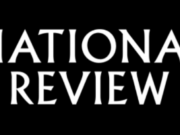“ Crumbs.” That’s how House Minority Leader Nancy Pelosi described the $1,000 bonuses paid to more than 200,000 AT&T employees as a result of the GOP tax cuts. I’m not an expert on tax policy (although most people I know here in Ohio think $1,000 is a pretty good chunk of change), but Pelosi’s comments got me thinking about an issue I do know something about: campaign finance disclosure.
These days, it seems most every campaign finance story tells the horrors of so-called “dark money,” a supposedly great, evil force in American politics. In fact, “dark money” is simply money spent on political campaigns by groups of Americans, without disclosing the name of each member of the group.
That is, when the National Rifle Association or the Environmental Defense Action Fund spends money to promote a candidate, they aren’t required to disclose the names of all their members and donors. So when the NRA, for example, spends money, we, the voters, can only know that the NRA is spending money — they don’t have to disclose that I, Bradley Smith, am a member.
That’s it. Can’t we can all live with that?
And this “dark money” is a tiny fraction of campaign spending — less than 3 percent of campaign spending in 2016. The truth is that the U.S. today has more extensive disclosure than ever before. Contrary to popular myth, even “super PACs” are required by law to publicly disclose all donors giving more than $200. Traditional PACs, political parties, and candidates must do the same. In many states, the disclosure thresholds are much lower — as little as $10.
Which takes me back to “crumbs.” If Nancy Pelosi thinks that $1,000 is “crumbs,” why does she support a law that requires every American who contributes more than $200 (and as little as $10 in some states) to a candidate, political party, or PAC, to be reported to the government, with their names, addresses, and employment information published for the world to see?
You might think of it this way: Federal campaign finance reporting is a vast government database, stretching back literally decades, of the political views and activity of millions of ordinary Americans. This database is not only available to government bureaucrats, it is made public where it can be accessed by potential or actual employers, financial institutions, college admissions officers, or any nosy neighbor. In this era of Twitter mobs, social media bullying, and politically-inspired vandalism and boycotts, is this really necessary, or even a good idea?
The argument for this disclosure of personal information and political views is that the public can use the information to spot potential corruption, or to judge candidates from the names of their supporters.
Nonsense. A $200 contribution represents about one one-hundredth of 1 percent of what the average winning House candidate spent in 2016. No one in Congress is being corrupted by $200 contributions. Nor do undecided voters learn anything from seeing the personal information of thousands of small donors, whom they almost certainly have never heard of.
These disclosure thresholds were low when enacted, and haven’t been adjusted, not even for inflation, since 1979. Studies have shown that compulsory disclosure of campaign contributions discourages small donor political participation. And disclosure laws are among the most difficult laws for true grassroots campaigns to comply with.
There is broad agreement that large political contributions should be disclosed, as in fact they are. Our current problem, therefore, is not too little disclosure of campaign contributions, but too much.
The threshold at which contributor information must be publicly disclosed should be substantially higher than it currently is. That would simplify the reporting system, make harassment of small donors less likely, and encourage small donor participation. That would be one campaign finance reform both Left and Right could get behind. And it wouldn’t be “crumbs.”
This post originally ran in The Washington Examiner on February 7th 2018.














